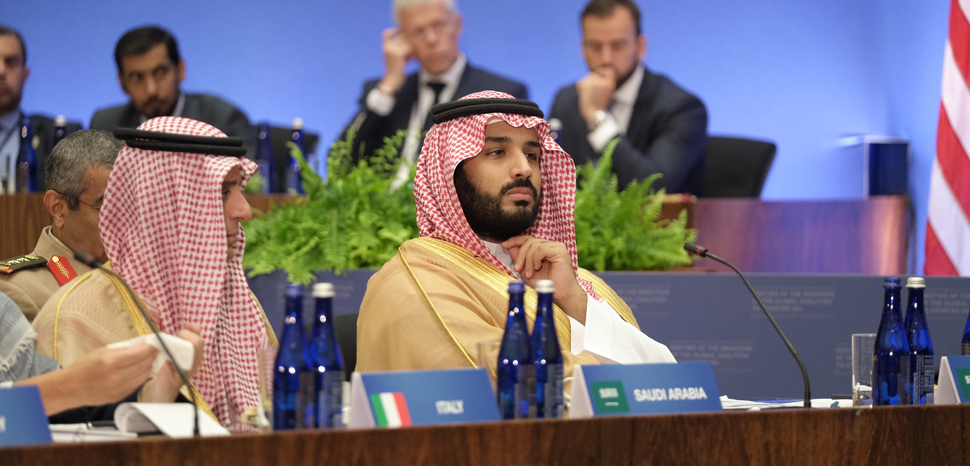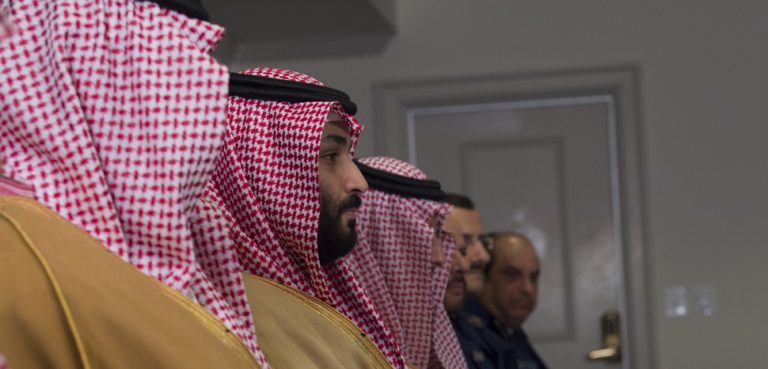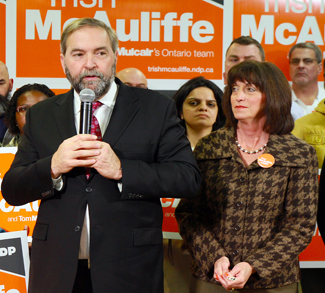Canada doesn’t often find itself in bitter spats, but a tweet by Canada’s foreign minister – calling for the release of detained siblings and human rights activists Raif and Samar Badawi in Saudi Arabia – has spiraled into the biggest diplomatic feud between the two countries in years. The Saudi response to Foreign Minister Chrystia Freeland’s statement was as extreme as it was abrupt, as the Saudis expelled the Canadian ambassador and recalled their own.
Riyadh didn’t stop there. The Saudi government has enacted a swath of draconian measures, from barring its citizens from receiving medical treatment in Canada to telling Saudis studying there to leave. Saudi Arabia is selling off its Canadian assets and has halted Saudia airline flights to Toronto, leaving Canadian pilgrims who traveled to Mecca for the Hajj in the lurch. And then there’s the propaganda campaign: Saudi media has variously tried to argue Canada is “one of the world’s worst oppressors of women,” that indigenous peoples in Canada are the targets of ongoing Rohingya-level persecution, and that Quebec deserves its independence. A pro-government Saudi group even tweeted a digitally-altered image of a plane flying towards Toronto’s skyline, as if to threaten another 9/11-style attack.
The United States and other Western countries, torn between their close relationships to both nations, have mostly stayed on the sidelines. The State Department’s comments that “both sides need to diplomatically resolve this together” constitute little more than a whimper of protest from Canada’s southern neighbor and closest ally. Even so, this nasty war of words has already claimed one prominent victim: the reformist image Saudi Arabia’s young crown prince and de facto leader, Mohammed bin Salman, had carefully cultivated since coming to power.
The overreaction to the Canadian government’s perfectly ordinary statement has cast a harsh new light on the ferocity – and fragility – of the man who will be king in Saudi Arabia. Bin Salman has been celebrated in the West as an energetic reformer, mostly thanks to his promises to fight radicalism and modernize the ultra-conservative kingdom. The 32-year-old crown prince embarked on a showy global tour earlier this year to promote the kingdom as the “next Europe” and himself as a reliable interlocutor and an agent of change.
The actual reforms underpinning this charm offensive have, after considerable hype, turned out to be lackluster at best. The Crown Prince may have relaxed restrictions on allowing women to drive and opened his country to Western entertainment, but these flashy moves have been overshadowed by a ruthless consolidation of power. Last November, under the guise of an anti-corruption campaign, the prince imprisoned more than 200 influential businessmen, government officials, and his own royal cousins in Riyadh’s Ritz-Carlton hotel and forced them to turn over millions of dollars in assets. As the government in Riyadh prepared to lift the driving ban, it also jailed many of the activists who fought for the change in the first place.
Outside Saudi Arabia, Mohammed bin Salman is the “architect” of the catastrophic Saudi-led intervention in Yemen. A coalition of Saudi Arabia and its allies has been found liable by the UN for more than half of the children killed during its campaign against Houthi rebels in 2017. On August 9, the alliance dropped a 227 kg bomb—which the United States sold to Saudi Arabia in 2015— on a school bus in Yemen, killing 40 children.
The Crown Prince is also the driving force behind a bruising blockade of Qatar that has now gone on for over a year. Saudi Arabia and the United Arab Emirates, together with allies such as Egypt and Bahrain, have restricted travel and imported goods from their gas-exporting Gulf neighbor. Frustrated by the strength of Qatari resolve, Mohammed bin Salman was allegedly willing to go so far as to invade the peninsula last year. Former US Secretary of State Rex Tillerson was reportedly responsible for helping the region avert that crisis; recent revelations from the Intercept indicate it may have cost him his job.
With conquering its neighbor off the table, the Saudi leadership is now plotting to build a 60-km long canal to physically turn Qatar into an island. This unwillingness to compromise is a trait Canada is now becoming acutely aware of: as Ottawa and Riyadh’s quarrel drags on, hundreds of Saudi medical residents which the Canadian healthcare has come to rely on are being forced to come home. While this type of aggressive retribution is intended to intimidate Saudi Arabia’s critics, its main outcome is ultimately to expose the crown prince’s unwillingness to entertain meaningful and systematic reform.
Fortunately, Saudi Arabia’s barking about inflicting economic pain has turned out to be far worse than its bite. The embargo against Qatar hasn’t quite had the desired effect; the Qatari economy has recovered from the initial hit, and Saudi’s besieged neighbour has used the spat as a chance to diversify its trading partners and solidify its national identity. Trade between Canada and Saudi Arabia amounted to more than $4 billion last year, but it largely consisted of a controversial deal to sell gun-mounted combat vehicles to the Saudis. If anything, the trade breakdown will save Canadians from being complicit in potential war crimes.
In the past, Canada and other Western allies have been willing to overlook Saudi Arabia’s serious human rights violations in exchange for lucrative arms deals, a steady flow of oil, and support for counter-terror operations. Now, however, Bin Salman’s behavior is taking a turn for the erratic. Canada likely won’t be the last Western government to find itself on the wrong side of the Crown Prince’s sensitivity to criticism. If the Saudi leadership continues down this path, how long will it be until Riyadh’s friendly façade breaks down beyond repair?
The opinions, beliefs, and viewpoints expressed by the authors are theirs alone and don’t reflect the official position of Geopoliticalmonitor.com or any other institution.




